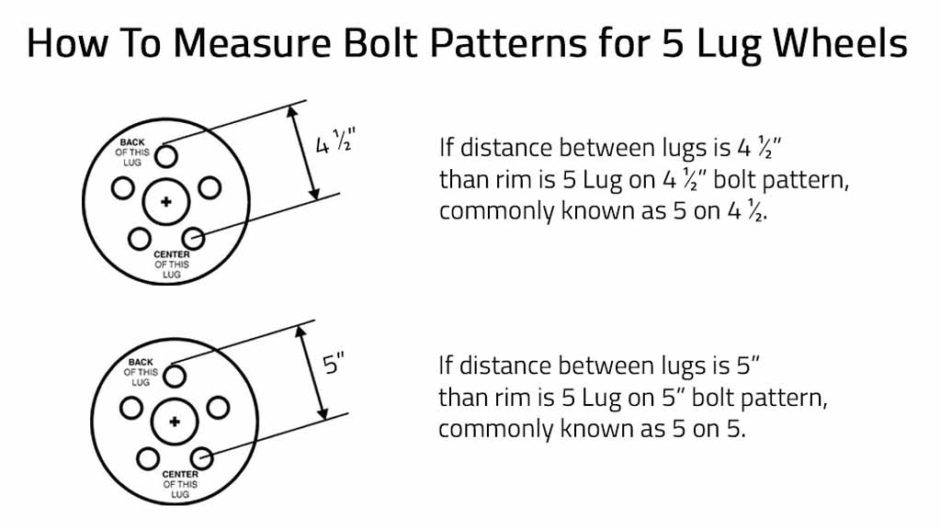Lost Your Lug Wrench? Decoding the Mysteries of Lug Nut Sizing
Ever stared blankly at a flat tire, realizing you’re missing a key piece of the puzzle – the right lug wrench? Finding the correct lug nut size can feel like cracking a secret code, but fear not! This guide will unravel the enigma of lug nut sizing and equip you with the knowledge to conquer any roadside emergency (or just avoid an expensive trip to the mechanic).
Identifying your car’s lug nut size is crucial for safe driving. Mismatched lug nuts can lead to loose wheels, a dangerous situation that could have disastrous consequences. Knowing how to figure out your lug nut size empowers you to buy the right replacements, borrow the correct tools, and confidently change a tire when needed.
From Model Ts to Teslas, the humble lug nut has played a critical role in automotive history. Originally, wheels were secured with various bolts and fasteners, but the standardized lug nut simplified the process, making wheel changes faster and safer. As cars evolved, so did the lug nut, with different sizes and thread pitches emerging to match specific vehicle designs. Determining the correct size became essential for proper wheel attachment and overall vehicle safety.
One of the main issues surrounding lug nut sizing is the sheer variety available. Different car manufacturers use different sizes, and even within a single brand, lug nut sizes can vary depending on the model and year. This can be incredibly confusing for the average driver. Another issue is the potential for cross-threading, which occurs when a lug nut with the incorrect thread pitch is forced onto a wheel stud. This can damage the studs, making it difficult or impossible to remove the wheel in the future.
So, how do you decipher this critical piece of car maintenance? There are several methods to decode your lug nut size. The "size" encompasses two key measurements: thread pitch and diameter. Thread pitch refers to the distance between the threads, while diameter refers to the width of the nut across the flats. These measurements are typically expressed in millimeters (e.g., M12x1.5).
Knowing your lug nut size offers three significant benefits: Safety – correctly sized lug nuts ensure secure wheel attachment, preventing dangerous wheel detachment; Cost Savings – avoid expensive repairs caused by incorrect lug nuts or trips to the mechanic for simple tasks like tire changes; and Empowerment - take control of basic car maintenance, gaining the confidence to handle minor roadside emergencies.
Step-by-Step Guide to Determining Lug Nut Size
1. Consult Your Owner's Manual: This is the quickest and easiest way to find your car's lug nut size. 2. Measure the Lug Nut: If you have a lug nut, use a caliper or thread pitch gauge to determine the diameter and thread pitch. 3. Check Online Databases: Many websites allow you to search for your car's lug nut size by make, model, and year. 4. Visit an Auto Parts Store: A knowledgeable staff member can often help you determine the correct size.
Recommendations: Check out online forums dedicated to your car make and model, where you can often find information about lug nut sizes. Also, consider purchasing a digital caliper, a valuable tool for any DIY enthusiast.
Advantages and Disadvantages of Manually Determining Lug Nut Size
| Advantages | Disadvantages |
|---|---|
| Empowering | Time-consuming |
| Cost-effective (if you already have tools) | Potential for error |
Best Practices: 1. Always double-check the size before purchasing new lug nuts. 2. Use a torque wrench to tighten lug nuts to the manufacturer's recommended torque specification. 3. Inspect your lug nuts regularly for wear and tear. 4. Never force a lug nut onto a wheel stud. 5. If you are unsure about any aspect of lug nut sizing or installation, consult a qualified mechanic.
FAQs
1. What happens if I use the wrong lug nut size? Loose wheels, damage to wheel studs. 2. Where can I buy new lug nuts? Auto parts stores, online retailers. 3. How often should I replace my lug nuts? When they show signs of wear and tear. 4. Can I use aftermarket lug nuts? Yes, but ensure they are the correct size and thread pitch. 5. What is a torque wrench? A tool that measures the amount of torque applied to a fastener. 6. How do I know the correct torque specification? Check your owner's manual. 7. What if I lose a lug nut? Replace it as soon as possible. 8. Are all lug nuts the same? No, they vary in size and thread pitch.
In conclusion, knowing how to find your lug nut size is a fundamental aspect of car ownership. It empowers you to perform basic maintenance, ensures your safety on the road, and can save you from costly repairs. By following the steps outlined in this guide, you can confidently decode the mysteries of lug nut sizing and keep your wheels rolling smoothly. Taking the time to learn this simple skill can have a significant impact on your driving experience, providing you with peace of mind and the ability to handle unexpected situations. So, grab a caliper, consult your owner's manual, and unlock the secrets of the lug nut! Don't let a missing lug wrench leave you stranded – be prepared and stay safe on the road.
Decoding january 21st zodiac sign personality
Wells fargo phone number scams protecting yourself
Navigating time at wvsu the academic calendar










